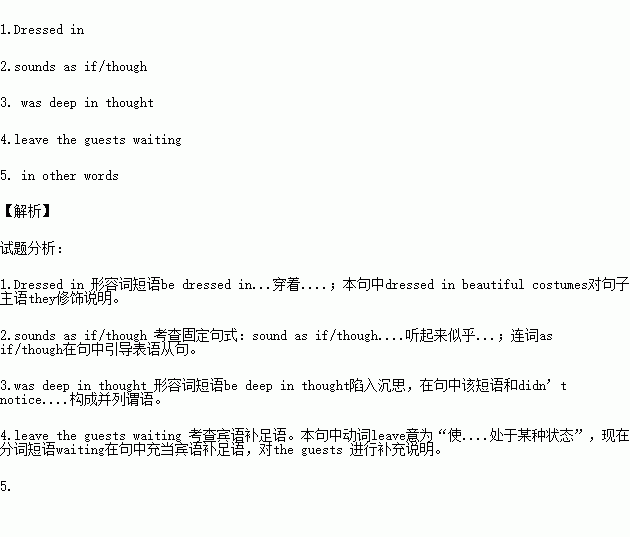题目内容
1._______ (穿着)beautiful costumes, they put on a wonderful performance on that day. (dress)
2.It __________(听起来好像)there is a knock at the door. (as)
3.He __________(陷入了沉思)and didn’t notice I came in. (thought)
4.Why did you__________ there?(让客人在等) (leave)
5.The tax only has an effect on people with incomes of over $200,000,________________,(换句话说)the very rich. (words)
练习册系列答案
相关题目


